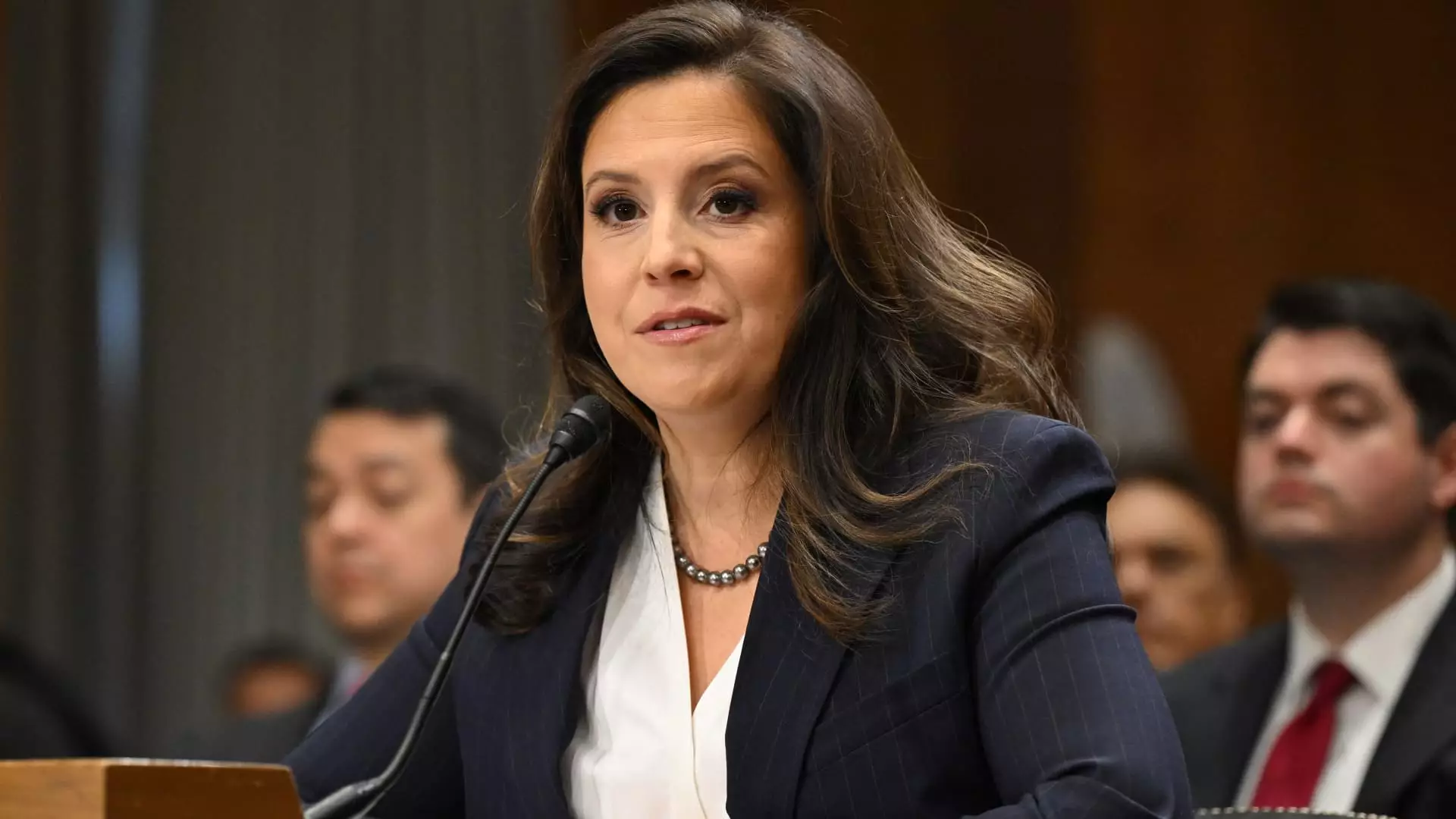President Donald Trump’s recent withdrawal of Rep. Elise Stefanik’s nomination as U.S. ambassador to the United Nations is not merely a political maneuver; it is symptomatic of a more serious issue within the Republican Party. Trump’s decision to prioritize maintaining control in the House over sending an effective ally to represent the U.S. at the UN reflects a troubling trend: the incessant sidelining of international diplomacy in favor of domestic political calculations. In a world where global cooperation is increasingly indispensable, this retreat from promoting sound leadership at the UN serves to weaken America’s stature on the world stage.
The Risks of Political Isolationism
By pulling Stefanik, a well-respected figure within the party, from contention for the UN seat, Trump not only demonstrates short-sightedness but also embraces a form of isolationism that should alarm centrists and liberals alike. The notion that maintaining every Republican seat should take precedence over appointing a competent ambassador diminishes the seriousness of international relations and suggests that political expediency trumps governance. The United Nations is not just a bureaucratic entity; it is a critical platform for resolving global crises. Withdrawing America’s influential voice threatens to cede ground to nations that do not share our values.
More Than Just a Game of Seats
Trump’s insistence on preserving party unity comes at a significant cost. By relegating the UN ambassador role to someone he perceives as less threatening to Republican incumbency, he undermines the very essence of what it means to lead on a global scale. It’s emblematic of a governing philosophy that shields itself from potential dissent rather than fostering the robust debates that can lead to innovative solutions. The UN requires leaders who don’t just toe the party line but are willing to engage with complex and multifaceted global issues.
The Fundamental Flaw in Trump’s Strategy
One might argue that strategic decisions are the backbone of political life. However, Trump’s rationale for keeping Stefanik in Congress—an ambiguous mix of loyalty and a desperate clinging to control—might backfire. Not only does it insinuate a lack of trust in the wider political process, but it could also alienate many who believe that engaged diplomacy is necessary for long-term peace and strategic advantage. As Jordan Risch, Chairman of Senate Foreign Relations Committee, revealed, this is an indication that even within the inner political circles, concerns are arising about the implications of such narrow political reasoning.
A Call for True Leadership
Moving forward, we must question the values that drive such critical decisions. Are we choosing representatives based on their capability to enact meaningful policies that benefit our standing globally, or are we sacrificing that potential for the sake of party loyalty? As a centrist liberal, I advocate for a vision of leadership that prioritizes diplomatic engagement and encourages a model of governance where the complexities of international relations are recognized as crucial to both our domestic prosperity and moral standing. In the end, the effectiveness of the U.S. on the world stage does not simply revolve around political seats; it relies on the willingness to embrace the challenges outside of our borders—a lesson that, it seems, remains unheeded in the corridors of Trump’s political maneuverings.


Leave a Reply